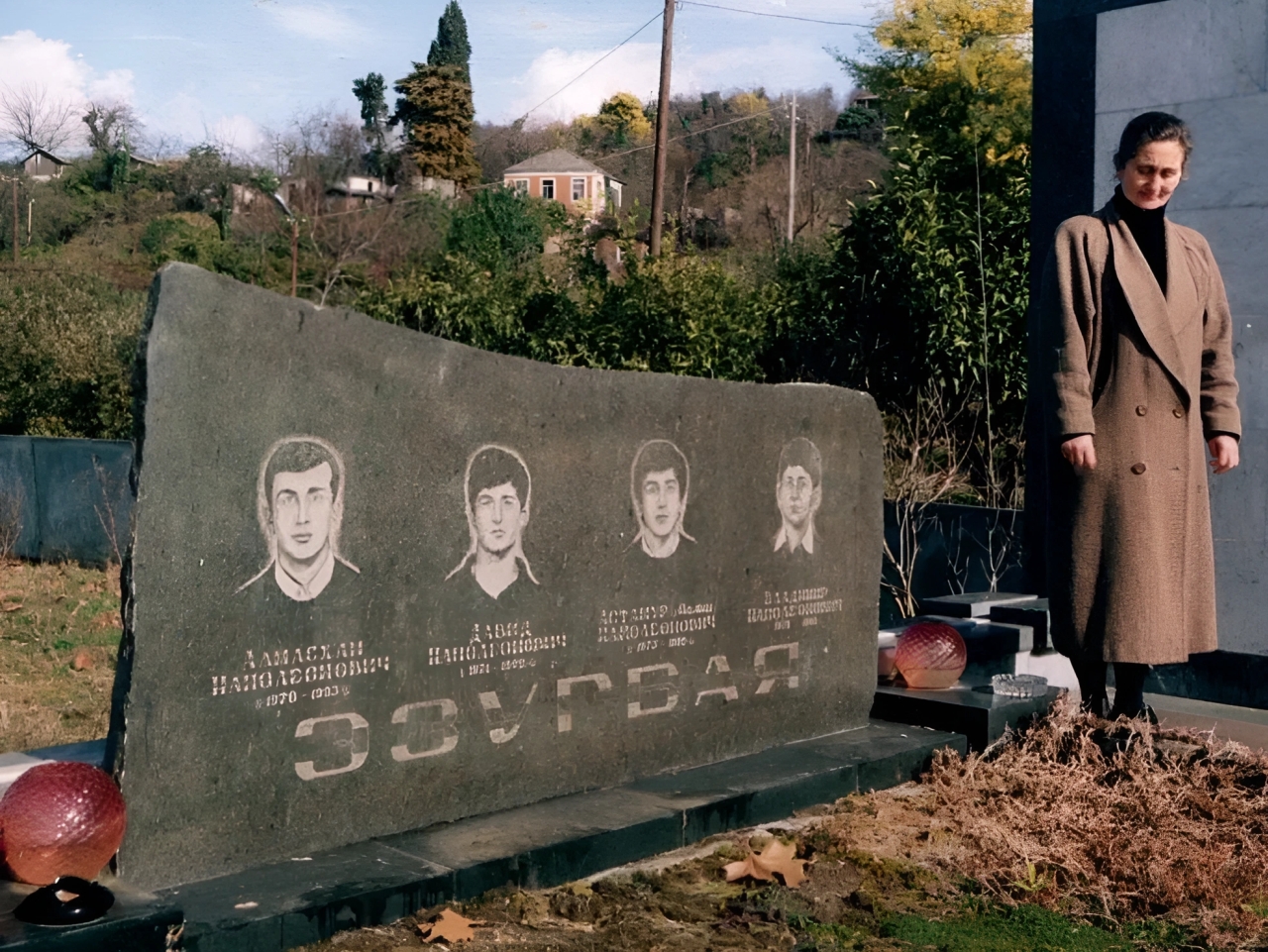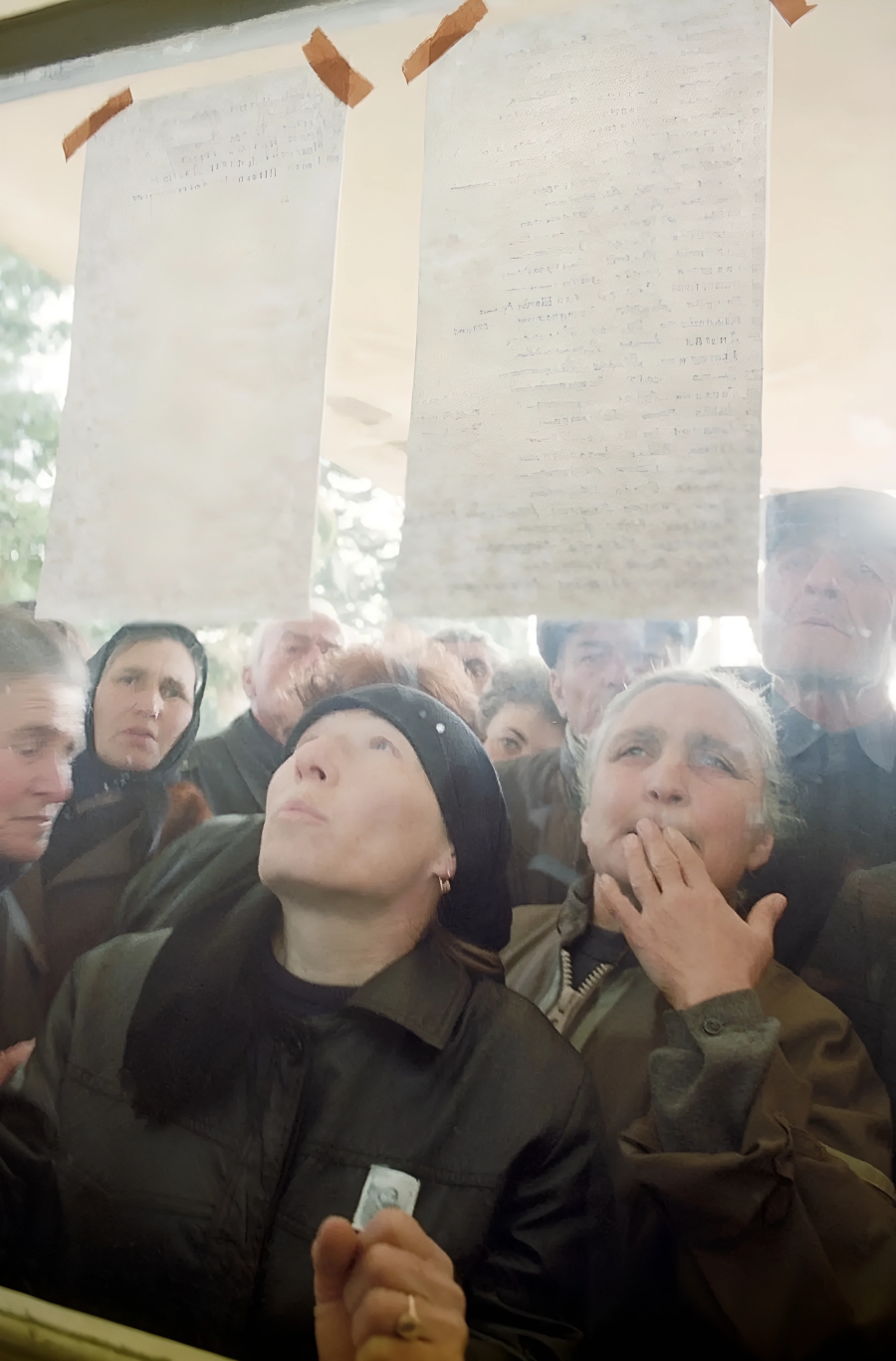Beslan Kobakhia
The public and political figure of Abkhazia. During the 1992-93 Georgian - Abkhazian War, he was head of the government commission for the exchange of prisoners of war and the protection of the civilian population. Abkhazia.
Despite the abundance of material about what happened 30 years ago, we, the Abkhazians, have failed, in my opinion, to convey to the whole world around us what happened to our people 30 years ago and what grave consequences this had and continues to have for them today.
According to the results of the last war, the Abkhazian people lost about six percent of their population killed. These were mainly losses among young men, whose average age was 23. Approximately three times as many people were severely injured and permanently disabled. A large gap formed in the ratio between women and men, as a result of which many girls of post-war Abkhazia did not have suitors left inside the country whom they could marry.
The hardest blow was dealt to the economy of Abkhazia, which was completely destroyed. Huge damage has been done to the scientific and educational system of the country. As is well-known, most schools, place of higher learning, and scientific institutions were simply wrecked and destroyed. In addition, most of the archives of our country in which many unique historical documents of the centuries-old history of Abkhazia were concentrated were put to the torch. Museums, theatres, cultural monuments were looted. In the city of Sukhum, not a single monument to the figures of the Abkhazian state, representatives of its culture and art, many of which cannot be restored, has remained undamaged.
The whole of Abkhazia was turned into a cemetery 30 years ago. Our whole country is littered with the graves of innocent people. In every district and town of Abkhazia today there are monuments to the fallen defenders of the motherland, which are sacred to all the people of our small country.
Everything that I list has been known for a long time and has been published many times in the free press. And yet, this does not impress the outside world, which cannot fully appreciate what happened in Abkhazia 30 years ago.
Therefore, I will try to compare the numbers of our losses with other countries, if such a large-scale tragedy were to happen to them.
If this happened in the United States, then the figures for loss in that country might be about 18 million individuals, i.e. about 45 thousand people would die every day of the war. For the European Union, the figures would be roughly comparable to those for the United States.
For China, if such a situation arose, the death toll might be approximately 90 million individuals, i.e. approximately 230 thousand people on each day of the war.
For Georgia, if this country suffered the same losses as Abkhazia, the death toll could be estimated at about 300,000, which would equate to about one thousand individuals per day of the war.
At the same time, it should be understood, as I said above, that among the dead were mostly men aged 23, most of whom were not married.
I apologise for playing with numbers, but it is precisely such an analysis that can help one fully to understand the tragedy of the situation in which the small Abkhazian people found themselves.

The history of mankind knows many examples of such tragedies. The most striking example is World War II, which is comparable in scale and consequences to what happened in Abkhazia at the end of the 20th century. We all remember from history how difficult it was for mankind to recover from the consequences of that terrible war, how many years it took to overcome the legacy of the horrors of the mid-20th century, how much effort was needed to restore the economy, culture, and educational system. But the most important thing is that humanity of that period was able both to condemn everything negative that gave rise to the Second World War, and to create an uncompromising attitude towards all types of manifestations of fascism. As a result today's world and its human values are based on that very basis. That is to say, our fathers and grandfathers found the strength not only to end the catastrophic war but also to overcome the legacy of the past, creating and passing on the modern world to us.

What helped Abkhazia survive in such a difficult situation 30 years ago? There are many components of this phenomenon, but there is one simple explanation of the reasons for the victory of Abkhazia in the war against an unequal enemy. That is the unconditional awareness of the rightness of their cause, unconditional faith in the justice of that war on the part of Abkhazia, and unshakable confidence on this basis in their subsequent victory. It was this attitude that helped our people survive 30 years ago. It was this attitude that helped our society avoid turning into a criminal enclave, in which we could well have found ourselves after such a monstrous war and its dire consequences. It is this attitude that helps us build our state today. And we see this state as open to all our friends in this world. The very model of the state under construction is based on democratic values, as indicated by all our fundamental documents adopted at different times, including the Referendum, and confirmed by subsequent decisions of the Parliament of the Country. Suffice it to say that all elections at all levels of power in our country take place at the appointed time and, without fail, on the basis of choice.
What do we expect from the world around us?
From Europe as a whole and from the entire Western World, we expect an understanding of what has happened to us over the course of the last 20-30 years. We do not ask for anything for ourselves that could exceed the usual actions of all the countries of the European Union. Abkhazia has never found itself outside world-processes throughout its centuries-old history. Suffice it to say that Abkhazia has in practice been part of all the universal integration-formations created in the world over the entire history of mankind. Abkhazia was part of the Roman Empire, the Byzantine Empire, the Ottoman Empire, the Russian Empire, and was part of the Soviet Union. An Abkhazian delegation took part in the first Christian Nicaean Council in 325 A.D.. Based on the results of the work of that First Council, a decision was taken to open an Orthodox Seat in Abkhazia, in the city of Pitsunda.
We expect Europe to recognize the current realities. In the last 30 years, the map of Europe has undergone significant changes, resulting in the emergence in the world of many new independent states. And Abkhazia too is amongst them. But towards Abkhazia, on the part of Europe, some kind of selective policy is being pursued which ignores reality. I believe that such an approach is not correct and does not meet the humanistic ideals of today's world. Suffice it to say that citizens of Abkhazia are often denied visas to EU countries, as a result of which many of our students are deprived of the opportunity to receive education in the best European universities, and sick people who need urgent treatment cannot get to the corresponding European clinics. Therefore, I would like to take this opportunity to appeal to the deputies of the European Parliament and ask them not to ignore Abkhazia, and give it the opportunity to be integrated into the world-community.
Unfortunately, we have more than enough problems. According to the most conservative estimates, the damage caused by the war and the post-war blockade of our country is at least 120 billion US dollars. It is clear that Abkhazia cannot cope with such problems and costs on its own. We need real economic and financial assistance to our country. We need a Grand Plan for the restoration of everything destroyed, which can only be possible with the consolidated assistance of the countries of the world. Today, only the Russian Federation is providing such assistance in relation to Abkhazia, for which we are extremely grateful. But the funds coming to Abkhazia are way insufficient to solve our problems. At the same time, looking back at world-history, one can recall how post-war Europe was restored, how post-war Japan was restored, developments which were made possible only with the consolidation of the leading world-powers.
Abkhazia, as a state, does not pose a threat to the outside-world. The very name of our country contains its essence, for one of the interpretations of it is "Country of the Soul". And the soul of our country is open to all people of the surrounding world who come to visit us with pure thoughts. Perhaps it is this name of our country that most fully reveals its mentality, which allows our people to survive in any situation, retaining their own sense of being and not losing the most important thing that is in the soul of every Abkhazian – Love of Humanity.
![Abkhazia: [14 August] 1992-2022](/images/banners/logo.png#joomlaImage://local-images/banners/logo.png?width=40&height=33)
